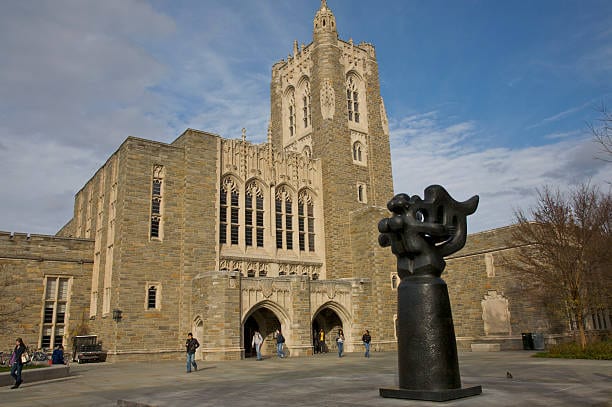By Megan Armknecht, The Center for Digital Humanities
The Center for Digital Humanities announces the inaugural cohort of Humanities Data Teaching Fellows. The new initiative is the latest Humanities Council Magic Project.
Three Princeton PhD students—Gyoonho Kong (G4, German), Akrish Adhikari (G3, French and Italian), and Daniel Persia (G1, Spanish and Portuguese)—have been chosen as Humanities Data Teaching Fellows. The Fellows will work with the Center for Digital Humanities and the Center for Statistics and Machine Learning to develop their own humanistic course modules for the undergraduate course “Introduction to Data Science” (SML 201).
“Peter Ramadge [Director of the Center for Statistics and Machine Learning] and I are thrilled to pilot the Humanities Data Fellows program,” said CDH Faculty Director Meredith Martin. “We’re excited by the potential for humanities PhD students to reach a broad range of Princeton undergraduates in this popular course. By developing modules that deal with humanistic approaches and applications of data science early on, Humanities Data Teaching Fellows serve as an important reminder that Princeton’s unique approach to interdisciplinary data science involves a consideration of humanities and the human at every turn.”
“The Fellows are proposing new ways to teach statistical concepts through humanities topics like the rise of the first-person narrator and enlightenment correspondence networks,” said Grant Wythoff, Digital Humanities Strategist for the Center of Digital Humanities. “We’re excited about the program because it will show incoming students why humanities courses are a great place for learning new kinds of data literacies.”
Each Fellow brings a unique set of experiences and skills to the role. Adhikari, for instance, explained that taking undergraduate courses in math and computer science helped him prepare for this opportunity. “Although I pivoted completely to train as a humanist,” he said, “my background in Computer Science and Math gives me the background to approach ideas and concepts in SML 201 in a bigger academic context.”
Persia has also taken a “non-linear and interdisciplinary path” that gives him a wide range of experiences for the fellowship. From studying mathematics and creative writing as an undergraduate to receiving a master’s in education and teaching visual and performing arts students, his education has taken him from Boston to Brazil, and now to Princeton, where he is pursuing a PhD in Spanish and Portuguese, with research interests in translation studies and African American Studies.
“Disciplines can provide useful frameworks for teaching and research,” Persia said, “but I think the big questions—the ones that really push us to grapple with ethics and poetics—transcend boundaries. I’m hopeful that this interdisciplinary mindset will encourage other students to take risks and be generous with themselves and their scholarship.”
The Fellows have thought critically about how their modules, teaching, and research as Teaching Fellows can benefit the Princeton community, both on campus and beyond. Kong is currently working with CDH Associate Director Natalia Ermolaev to “help her organize the workshops for the New Languages for NLP (natural language processing) project,” a NEH-funded series that increases linguistic data for less-resourced languages.
In addition to “formally learning the basics of data science,” Adhikari looks forward to creating a teaching module for SML 201, which will help “prepare students for quantitative humanistic thinking, and how we can leverage methods in data science to answer questions about literature, history, art, and vice versa.”
Persia also views the intersections of data science and humanities as timely. “For better or worse, data and technology have become an integral part of our world,” he said. “There are certain ethics to dealing with numbers—to interpreting data, to grappling with small and large-scale quantification—that seems vital to a 21st-century education in the humanities. Data can help us to identify and address inequities, or to study textual and linguistic features, but it also comes with potential costs—the risk of misinterpretation, misuse, or even reinforcing preexisting biases. I’m interested in tackling those ethical questions and integrating them into my teaching and research here at Princeton.”
In developing their individual course modules for SML 201, the Fellows have expressed appreciation for CDH’s approach to interdisciplinary studies. Adhikari explained that he has already “learned enormously” from the CDH staff and how they carefully think “about digital humanities and the quantitative turn.”
Similarly, the Humanities Data Teaching Fellowship was an ideal fit for Persia, as he wanted a space and community that would “embrace the possibilities of interdisciplinarity.” In his own work as a translator, he has been thinking “about how we can use data to identify some of the trends and inequities of the global translation publishing industry. The Humanities Data Teaching Fellowship seemed like the perfect way to pursue this research collaboratively, developing a course module that would reach a wider audience and, hopefully, inspire new questions and debates.”
The second cohort of Humanities Data Teaching Fellows will join the program in the fall of 2021, and will work with the CDH and the School of Engineering and Applied Sciences to provide humanistic modules for SEAS courses, offering additional ways to think across interdisciplinary boundaries.
“The Humanities Teaching Fellowship is a wonderful opportunity to rethink some of the boundaries that we face as scholars—between disciplines deemed more ‘scientific’ or ‘humanistic,’” said Persia. “I’m inspired by the ways that this initiative looks forward, reimagining humanities education for the 21st century and beyond.”
















